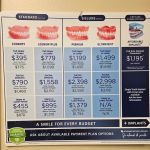- 1-Understanding-Dry-Mouth-Caused-by-Medication
- 2-Common-Medications-That-Cause-Dry-Mouth
- 3-Symptoms-and-Impact-of-Medication-Induced-Dry-Mouth
- 4-Practical-Ways-to-Treat-Dry-Mouth-Caused-by-Medication
- 5-Lifestyle-and-Dietary-Changes-to-Help-Manage-Dry-Mouth
- 6-When-to-See-a-Professional-for-Dry-Mouth-Issues
Understanding Dry Mouth Caused by Medication
Dry mouth, medically known as xerostomia, is a common side effect of many medications. When you wonder how to treat dry mouth caused by medication, it’s important first to understand why it happens. Certain drugs reduce saliva production by affecting the salivary glands or the nervous system pathways that stimulate saliva flow. Without adequate saliva, your mouth becomes dry, which can lead to discomfort, difficulty swallowing, increased risk of cavities, and oral infections.
This condition is particularly prevalent among individuals on long-term medication regimens, such as for hypertension, depression, or allergies. Knowing the cause helps in selecting the most effective treatment and management strategies.
Common Medications That Cause Dry Mouth
Several classes of medications are notorious for causing dry mouth. These include:
1. Antidepressants and Antipsychotics
Drugs like amitriptyline, paroxetine, and fluoxetine can decrease saliva secretion, making dry mouth a frequent complaint among users.
2. Antihistamines and Decongestants
Medications used to treat allergies or colds, such as diphenhydramine or pseudoephedrine, often dry out mucous membranes.
3. Blood Pressure Medications
Diuretics and beta-blockers may reduce fluid levels in the body, leading to less saliva production.
4. Pain Medications
Opioids and certain NSAIDs can contribute to dry mouth symptoms.
Understanding which medicines contribute to dry mouth enables patients and healthcare providers to anticipate and address this side effect effectively.
Symptoms and Impact of Medication-Induced Dry Mouth
The symptoms of medication-induced dry mouth extend beyond mere discomfort. Common signs include:
- Persistent dryness or sticky feeling in the mouth
- Difficulty chewing, swallowing, or speaking
- Burning or soreness on the tongue or oral tissues
- Increased thirst and frequent sipping of water
- Bad breath and altered taste sensation
The long-term impact includes higher susceptibility to dental decay, gum disease, and oral infections such as candidiasis. This makes managing dry mouth crucial not only for comfort but also for maintaining oral health.
Practical Ways to Treat Dry Mouth Caused by Medication
When exploring how to treat dry mouth caused by medication, several practical remedies can provide relief:
1. Increase Hydration
Frequent sips of water throughout the day help keep the mouth moist. Carrying a water bottle is a simple yet effective habit.
2. Use Saliva Substitutes and Mouth Sprays
Over-the-counter saliva substitutes or moisturizing mouth sprays can mimic natural saliva and reduce dryness.
3. Stimulate Saliva Production
Chewing sugar-free gum or sucking on sugar-free candies can promote saliva flow.
4. Maintain Good Oral Hygiene
Brush and floss regularly, and use fluoride toothpaste to protect teeth from decay linked to dry mouth.
5. Consult Your Healthcare Provider
If dry mouth is severe, your doctor or dentist might adjust your medication or prescribe treatments such as pilocarpine, which stimulates saliva production.
Lifestyle and Dietary Changes to Help Manage Dry Mouth
Certain lifestyle habits can worsen dry mouth symptoms, so making adjustments is beneficial:
1. Avoid Alcohol and Tobacco
Both substances dry out the oral tissues and should be minimized or eliminated.
2. Limit Caffeine and Sugary Foods
Caffeine is a diuretic and can increase dryness. Sugary foods raise cavity risk when saliva is low.
3. Use a Humidifier
Adding moisture to the air, especially during sleep, can ease dry mouth symptoms.
4. Breathe Through Your Nose
Mouth breathing aggravates dryness, so focus on nasal breathing when possible.
When to See a Professional for Dry Mouth Issues
If dry mouth caused by medication persists despite self-care measures, it is important to consult a healthcare professional. Dentists or specialists can assess the condition’s severity and recommend targeted treatments. Persistent dryness can lead to serious oral health problems, so timely intervention is essential.
For tailored advice, trusted products, and professional services to manage medication-induced dry mouth, visit Dentistry Toothtruth. Their expertise ensures you get the best care and relief suited to your needs.







 All Star Dental Clinic4.0 (322 review)
All Star Dental Clinic4.0 (322 review) Gig Harbor Endodontics5.0 (173 review)
Gig Harbor Endodontics5.0 (173 review) Affordable Dentures & Implants4.0 (757 review)
Affordable Dentures & Implants4.0 (757 review) Handelman Charles Dmd Pc4.0 (19 review)
Handelman Charles Dmd Pc4.0 (19 review) Spartan Dental4.0 (222 review)
Spartan Dental4.0 (222 review) Aspen Dental - Philadelphia, PA4.0 (326 review)
Aspen Dental - Philadelphia, PA4.0 (326 review) The Importance of Oral Health Education During Pregnancy for a Healthy Pregnancy
The Importance of Oral Health Education During Pregnancy for a Healthy Pregnancy Best Tips for Brushing Your Teeth Properly for Healthy Gums: Essential Techniques for Oral Health
Best Tips for Brushing Your Teeth Properly for Healthy Gums: Essential Techniques for Oral Health Why Skipping Dental Checkups Can Lead to Bigger Oral Health Problems
Why Skipping Dental Checkups Can Lead to Bigger Oral Health Problems Advantages of Porcelain Dental Restorations
Advantages of Porcelain Dental Restorations How Can Diabetes Cause Tooth and Gum Problems? Preventing and Managing Oral Health Issues
How Can Diabetes Cause Tooth and Gum Problems? Preventing and Managing Oral Health Issues Healthy Habits for Promoting Good Oral Health and Hygiene: Tips for a Healthy Smile
Healthy Habits for Promoting Good Oral Health and Hygiene: Tips for a Healthy Smile